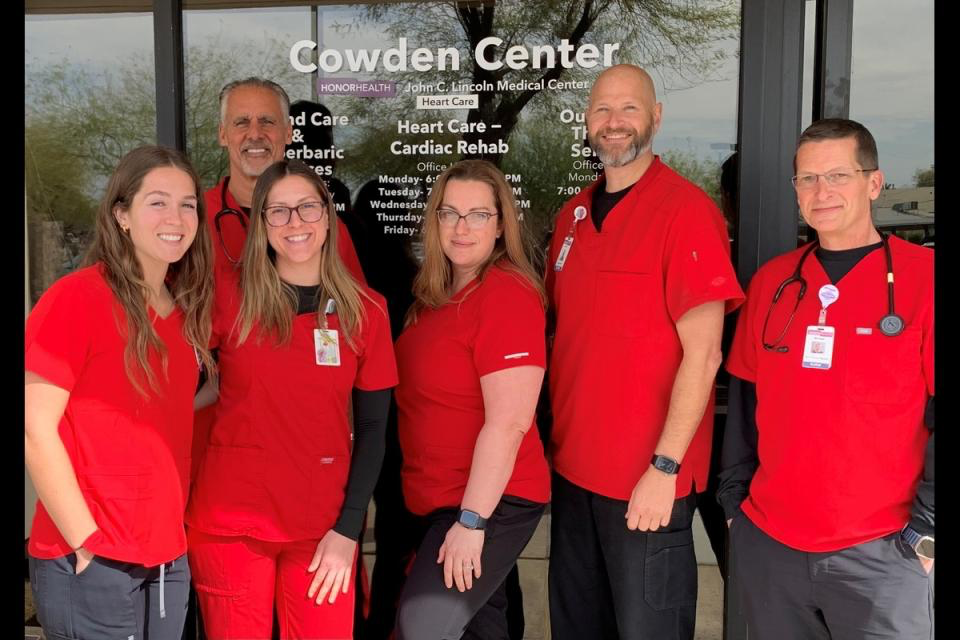Collaborative care: HonorHealth Heart Failure Bridge Program
Clinical impact through interdisciplinary care
With heart failure affecting approximately 6.7 million Americans over the age of 20 and projections reaching 11.4 million by 2050, the need for effective outpatient management is critical. The HonorHealth Heart Failure Bridge Program offers a structured approach to post-discharge care, demonstrating real impact for patients like Erika.

Case highlight: Collaborative care in action
When Erika was discharged following acute decompensated heart failure, she was promptly enrolled in the HonorHealth Heart Failure Bridge Program.
“The weight of her diagnosis was heavy, but from the very first moment we met Erika, we saw something remarkable begin—not just for her, but for the entire healthcare team,” says Liz Basinger, BSN, CCRN, registered nurse with HonorHealth Cardiac Rehabilitation. “Erika’s resilience was incredibly inspiring, and our collaboration with the skilled providers from Neighborhood Outreach Access to Health (NOAH) and HonorHealth’s cardiology team was key to ensuring she received the highest quality care.”
The care team welcomed Erika and her family, helping them understand her condition. This was especially important as non-native English speakers navigating healthcare for the first time. “I’m grateful for the time and effort my care team took to help my family and me understand my condition,” shares Erika. “These moments of understanding have made all the difference.”
Erika has now completed phase one of the program and is eager to begin phase two of her recovery. She’s already scheduled a follow-up with Tabitha Moe, MD, cardiologist with HonorHealth Heart Care, for an echo to check her progress. “We’re so grateful to be a part of Erika’s path to better health and are inspired by her courage and determination,” says Wesley Tyree, MD, medical director, HonorHealth Cardiac Rehabilitation.
Program structure and clinical relevance
The Heart Failure Bridge Program addresses the significant healthcare resource strain and high readmission rates associated with heart failure through:
- Early intervention: Initiation within two weeks post-discharge.
- Evidence-based education: Eight one-hour sessions covering topics such as lifestyle changes, exercise, nutrition and medication management.
- Ongoing clinical assessment: Regular vital signs, weight tracking and edema evaluation.
- Seamless transition to phase two cardiac rehab for eligible patients.
The program has demonstrated improvements in physical function among diverse, older patients with acute decompensated heart failure compared to usual care and is available to all heart failure patients regardless of ejection fraction.
Patient referral information
Locations:
- HonorHealth Heart Care — Cardiac Rehab — John C. Lincoln 602-870-6368.
- HonorHealth Heart Care — Cardiac Rehab — Shea 480-323-4600.
- HonorHealth Heart Care — Cardiac Rehab — Deer Valley 623-879-1800.
Referral process: Any clinical team member can refer eligible patients. The Cardiac Rehabilitation team will contact the patient directly to coordinate attendance.
Cost: All services are provided at no cost to patients.
Clinical pearls for heart failure management
- Early enrollment in structured post-discharge programs has been shown to reduce readmission rates.
- Patient education regarding weight monitoring and medication adherence remains critical.
- Interdisciplinary care models like this program provide comprehensive support for complex heart failure patients.
